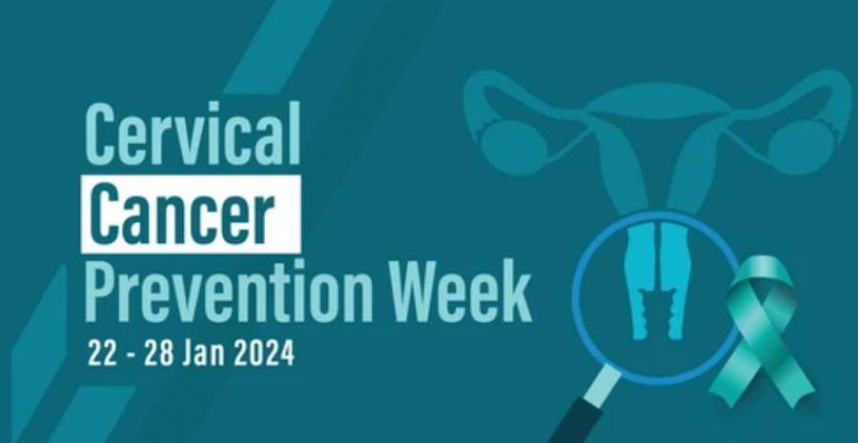
Cervical Cancer Prevention Week 2024 is observed from January 22nd to January 28th.
Cervical Cancer Prevention Week 2024 is a dedicated awareness campaign aimed at educating people about cervical cancer, its prevention, and the importance of regular screenings. Cervical cancer is a largely preventable disease, and this week serves as a reminder to prioritize cervical health and take steps to reduce the risk of this cancer.
What is Cervical Cancer Prevention Week 2024?
Cervical Cancer Prevention Week 2024 is an annual initiative organized by various healthcare organizations, including cancer charities and healthcare providers. Its primary goal is to raise awareness about cervical cancer, encourage women to attend cervical screenings (also known as smear tests), and provide information about the HPV (human papillomavirus) vaccination.
History of Cervical Cancer Prevention Week
Cervical Cancer Prevention Week has been observed for many years and has played a crucial role in raising awareness about cervical health. It was established to honor the memory of Jade Goody, a well-known British reality television star who tragically passed away from cervical cancer at a young age. Her story highlighted the importance of early detection and prevention.
HPV
HPV is a common virus that most people (eight out of 10) get infected with at some point. In most people, it will go away within two years without causing any problems. There are many types of HPV and cervical cancer is linked to infection with high-risk types of HPV which do not go away on their own.
HPV does not cause any symptoms so cervical screening tests look for high-risk HPV first and, if a screening sample is positive for high-risk HPV, a patient is invited back for cervical screening in one year (rather than in three years). If a patient has high-risk HPV plus cell changes, they will be invited to colposcopy for further tests.
A colposcopy is an examination normally done in a hospital or local clinic where a closer look is taken at the cervix and a biopsy may be taken. Depending on the results, treatment may be offered to remove the abnormal cells before they become cancerous or, if there is cancer present, further treatment will be offered, which depends on how large the cancer is and whether it has spread to anywhere else in the body.
Symptoms of Cervical Cancer
Symptoms can include:
- Abnormal vaginal bleeding
- Pelvic pain
- Pain during intercourse
- Unusual vaginal discharge
In the later stages of cervical cancer, symptoms can also include:
- Unexplained pain in the lower back or pelvis
- Unexplained weight loss
If women present with these symptoms, they should contact their GP. The symptoms may or may not be due to cervical cancer, but seeing a GP can ensure that they are thoroughly investigated.
However, for some women, cervical cancer does not cause any obvious symptoms which is why women need to attend their cervical screening tests (previously known as smear tests) when they are offered.
Diagnosis and Treatment
Diagnosis of cervical cancer can include investigations such as:
- Cervical screening tests
- Colposcopies
- Biopsy
- Scans
- Hysteroscopy (looking inside the womb with a narrow telescope and camera)
Treatment options range from surgery to chemotherapy, depending on the stage of the cancer when diagnosed. Radiotherapy and brachytherapy are other treatments that can be offered.
Importance of Timely Diagnosis
Early detection is key to increasing survival rates and limiting the extent of treatment that a woman may need. A delayed diagnosis can allow the cancer to progress, leading to the need for more aggressive treatment and worse outcomes (such as a lower chance of recovery or increased risk of the cancer coming back).